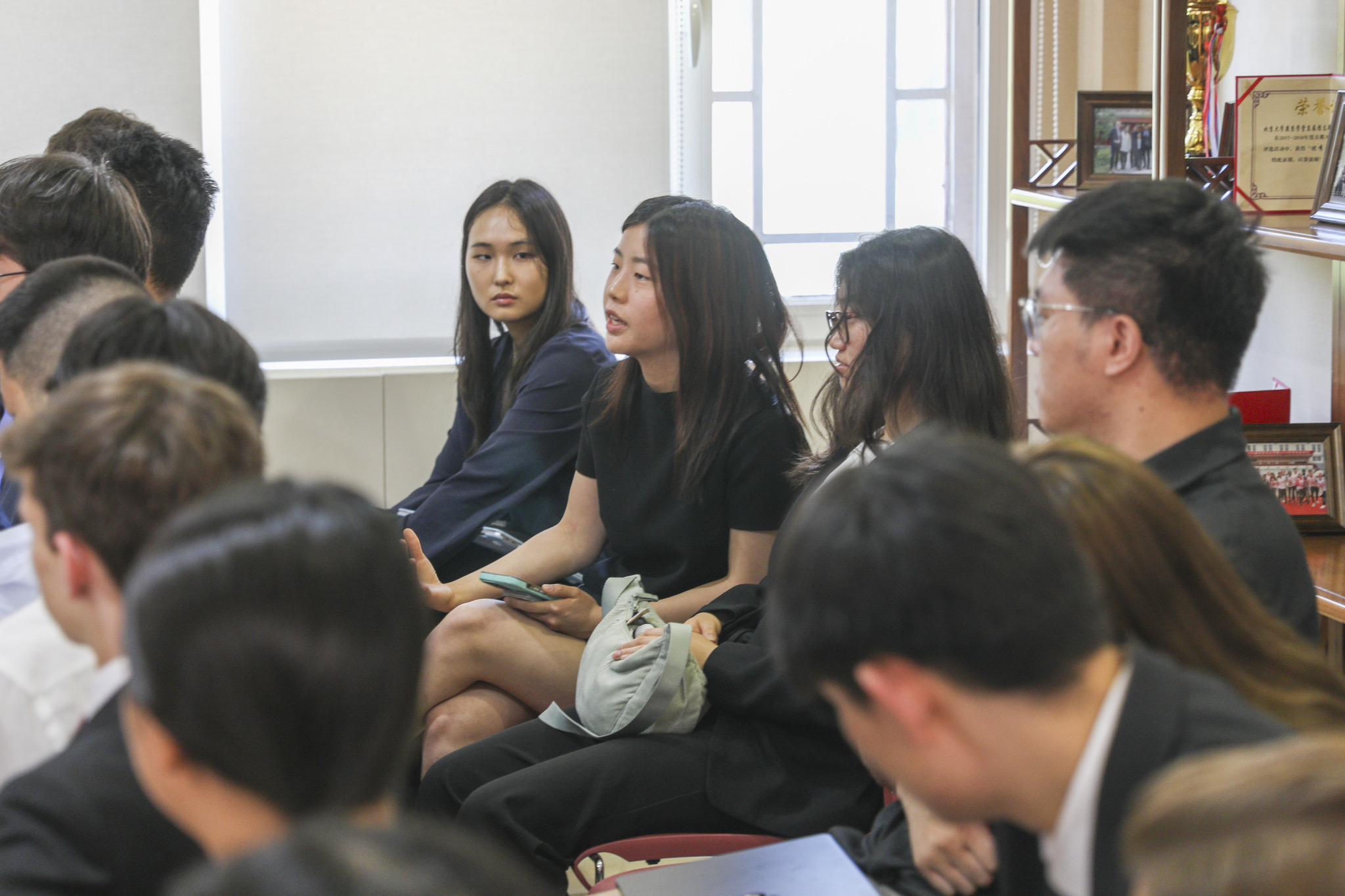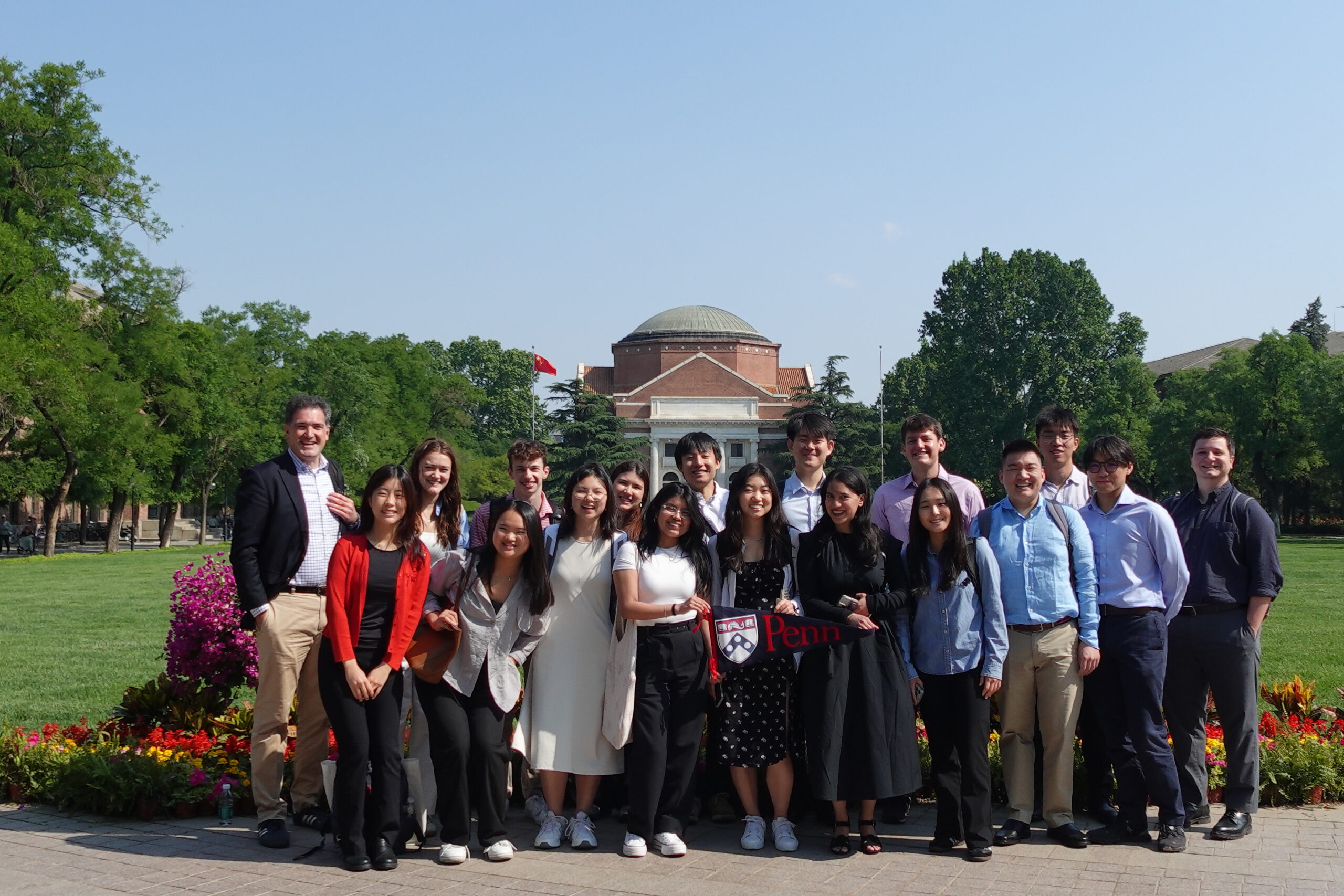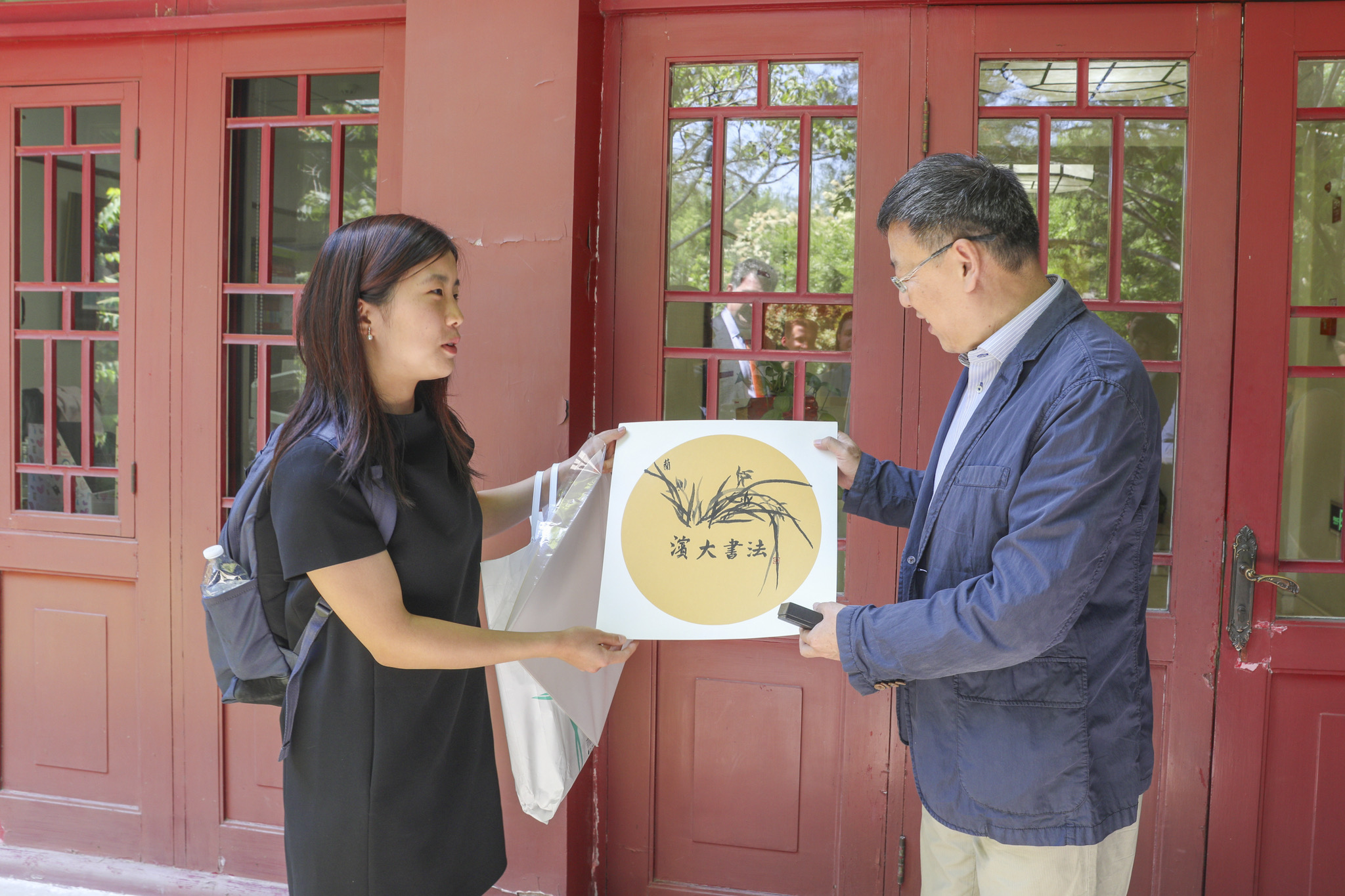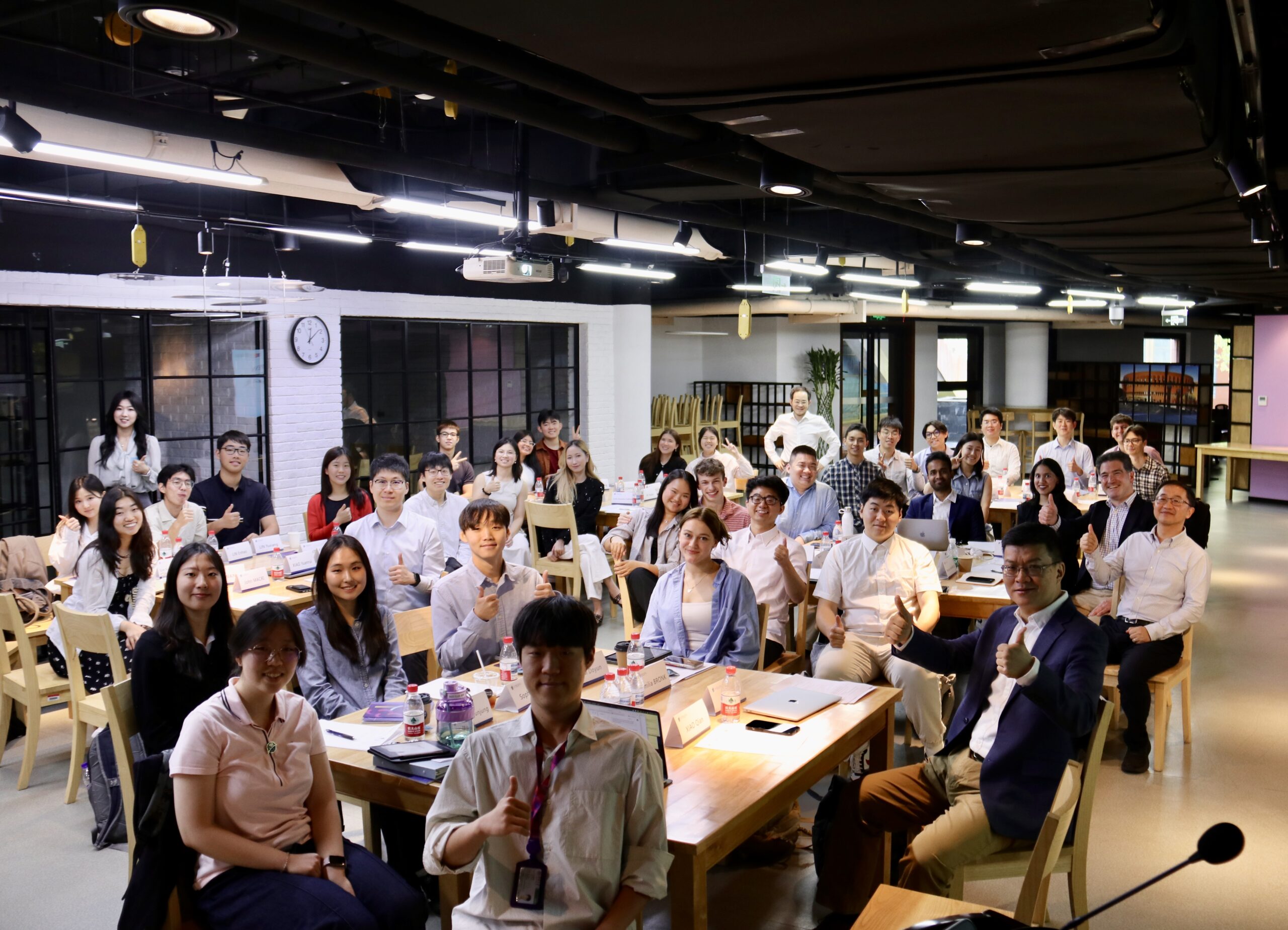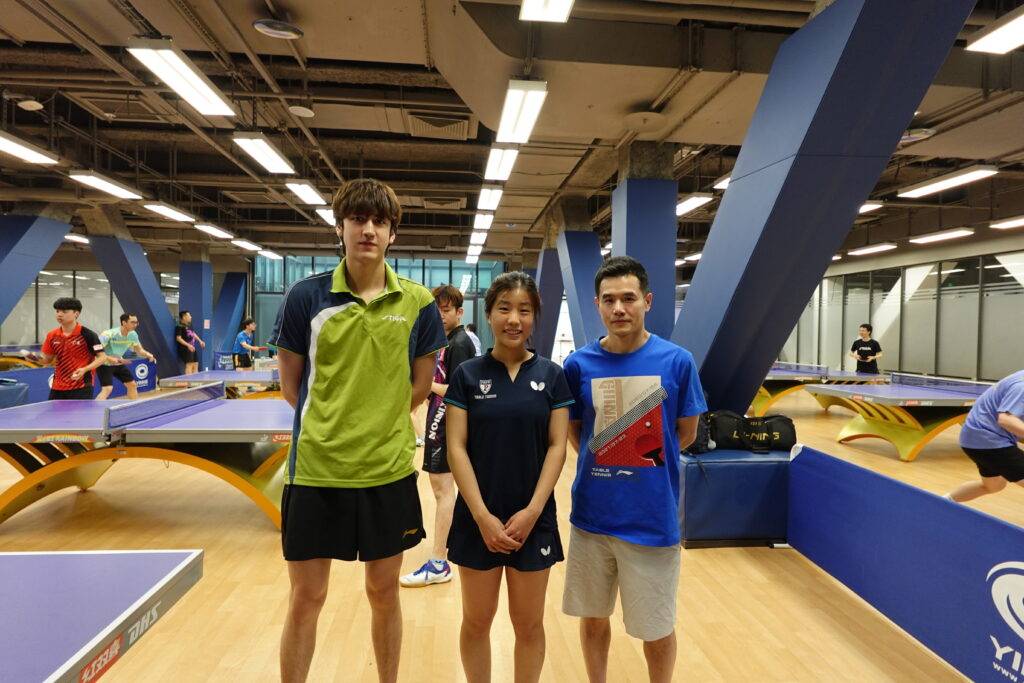
Rachel Ou
CAS ’27
Biology
PGS: Policy Task Force on U.S.-China Relations
Contact
Ask Me About…
When I signed up for the Penn Global Seminar Future of U.S.–China Relations, I was the only STEM major—and the only pre-med—in a policy-heavy class. Surrounded by political science, history, and international relations majors, I wondered if I was qualified to contribute, or if my science-focused background would set me apart in the wrong way.
Instead, it became one of the most transformative learning experiences of my life. The course challenged me to think beyond the lab bench, applying analytical skills from biochemistry to complex discussions on diplomacy, economics, and global health. Traveling to Beijing, Shanghai, and Hangzhou, I saw firsthand how policy and science intertwine—whether in pandemic preparedness, biotech innovation, or environmental health. I found myself bridging two worlds: translating scientific concepts such as gene-editing and vaccine therapies in policy discussions, and recognizing the policy forces shaping healthcare and research.
As a pre-med student abroad, I also learned the value of stepping outside the traditional path. Many STEM students worry that time abroad will “set them back,” but I came away as a more well-rounded student with sharper critical thinking, confidence in public speaking skills, and a deeper understanding of healthcare as a global system.
I can share what it’s like to be the “nontraditional” student in a policy program, how to adapt your skills to unfamiliar disciplines, and why STEM and pre-med students can—and should—study abroad. If you’ve ever felt uncertain about whether you belong in a program outside your field, my experience might be the encouragement you need to take the leap.
My Experience Abroad
As a pre-med Biology major, my studies have focused on the science of medicine: biochemistry, genetics, and physiology. The Penn Global Seminar Future of U.S.–China Relations expanded that focus to the diplomacy and policy shaping how science and healthcare advance on a global stage.
While traveling to Beijing, Shanghai, and Hangzhou, I engaged with students and faculty on topics ranging from biotech innovation to pandemic preparedness. I saw how U.S.–China science and health collaboration – through joint research, data sharing, and technology partnerships – can accelerate breakthroughs that save lives. At the same time, I learned how political tensions risk slowing progress in areas where cooperation is most critical, such as infectious disease response and equitable drug distribution.
This experience has reshaped how I approach my STEM coursework. I now see each scientific discovery not only as a technical achievement, but as part of a global network influenced by policy, diplomacy, and mutual trust. I also came away with a comparative perspective – having observed China’s ongoing healthcare reform to expand coverage and improve efficiency – that reinforced how studying other systems can spark ideas for making healthcare more equitable and effective at home.
Professionally, I aim to practice medicine while contributing to global health policy, advocating for collaboration. Studying abroad didn’t just add an international chapter to my education– it reframed the way I think about my role as a future physician, showing me that medicine operates within a much larger global conversation.
Other Highlights
Presenting my research paper ideas to institutions like the U.S. Embassy in Beijing, the National People’s Congress, the U.S. Consulate in Shanghai, and the Shanghai Department of Commerce pushed me far outside my comfort zone. Speaking directly with high-level policymakers challenged me to articulate complex ideas across cultural and political lines.
Equally meaningful were the moments spent with students at Tsinghua, Peking, Fudan, and NYU Shanghai. Meeting during a time of heightened U.S.–China political tensions, I expected our conversations to dwell on differences. Instead, we bonded over Starbucks drinks, compared playlists of the same pop artists, and swapped recommendations for late-night street food. It was a reminder that beyond politics, we are young people with common tastes, humor, and aspirations.
Traveling between cities on China’s high-speed rail, I experienced the seamless connectivity of the country’s infrastructure. Adapting to a fully cashless society—buying everything from subway tickets to street food with my phone—showed me how technology can transform daily life at scale.
Some of my favorite memories came from shared challenges, like climbing the steep, uneven steps of the Great Wall at Simatai. It was exhausting and treacherous, but the struggle brought our class together in a way no lecture could.
And in Beijing and Shanghai, I reunited with table tennis friends I had trained and competed with years ago, picking up conversations as if no time had passed. At Tsinghua’s gymnasium, I picked up my paddle and rallied with them, reminding me how sport—like education—builds bridges that span years and cultures.
